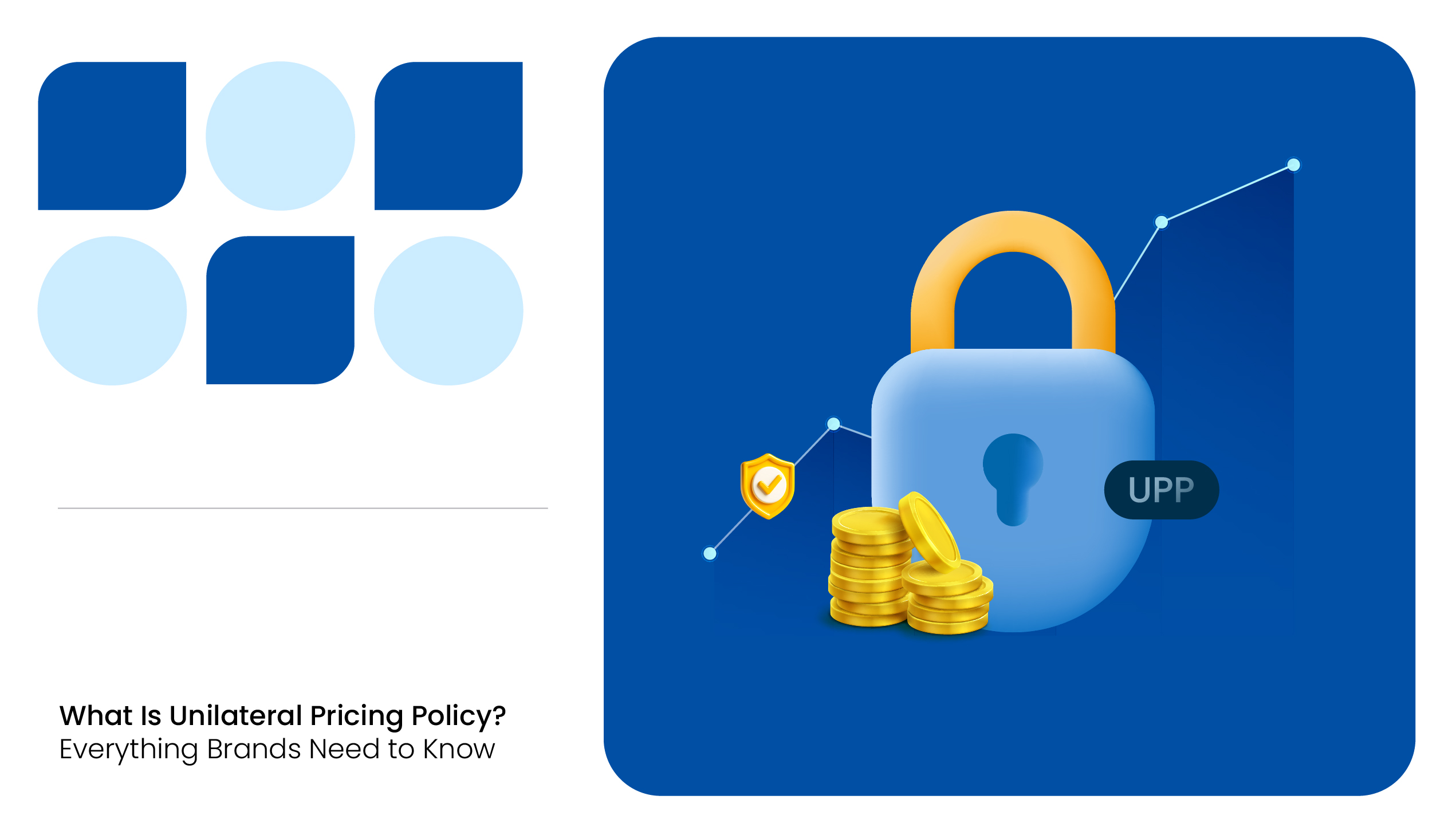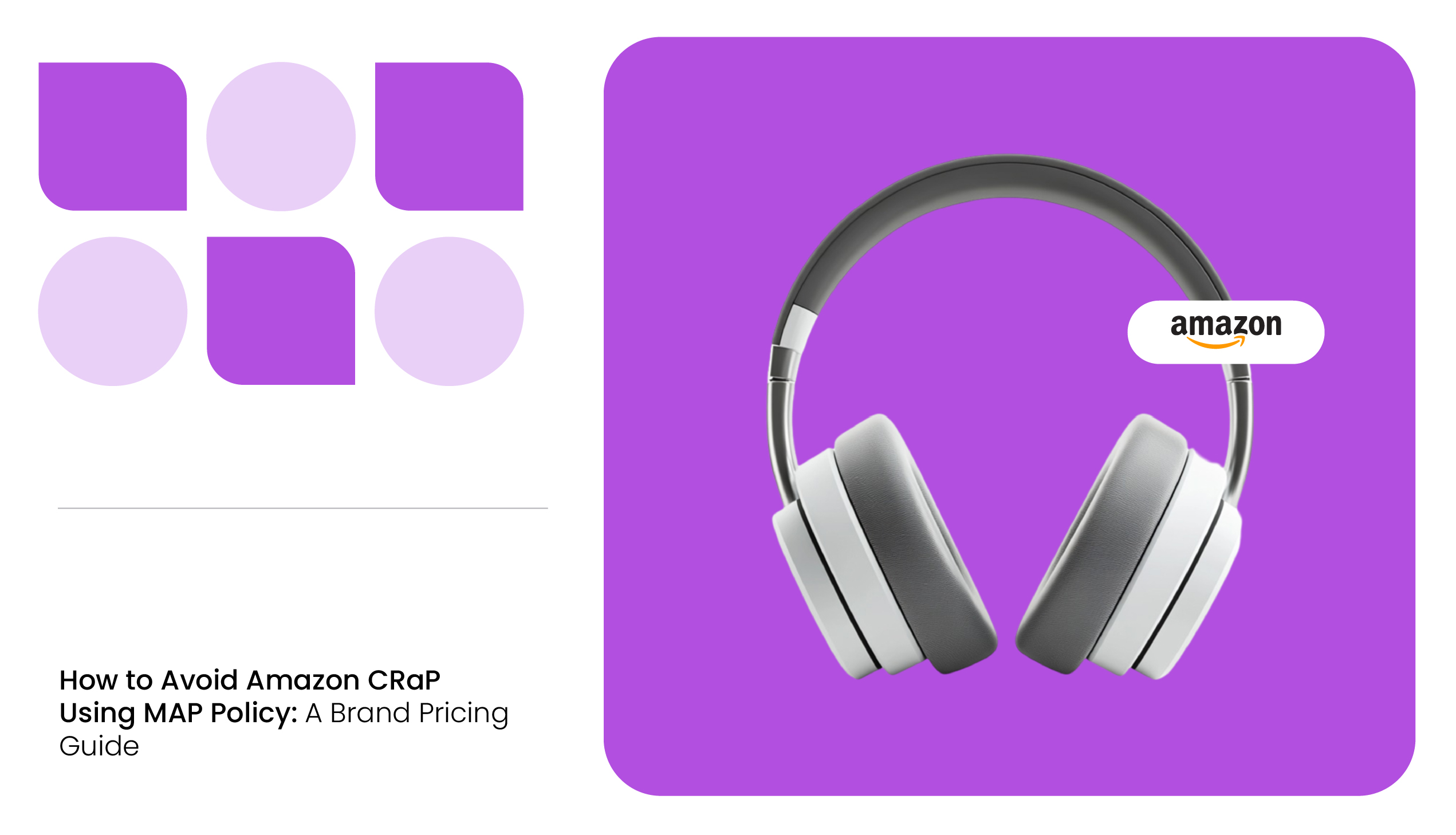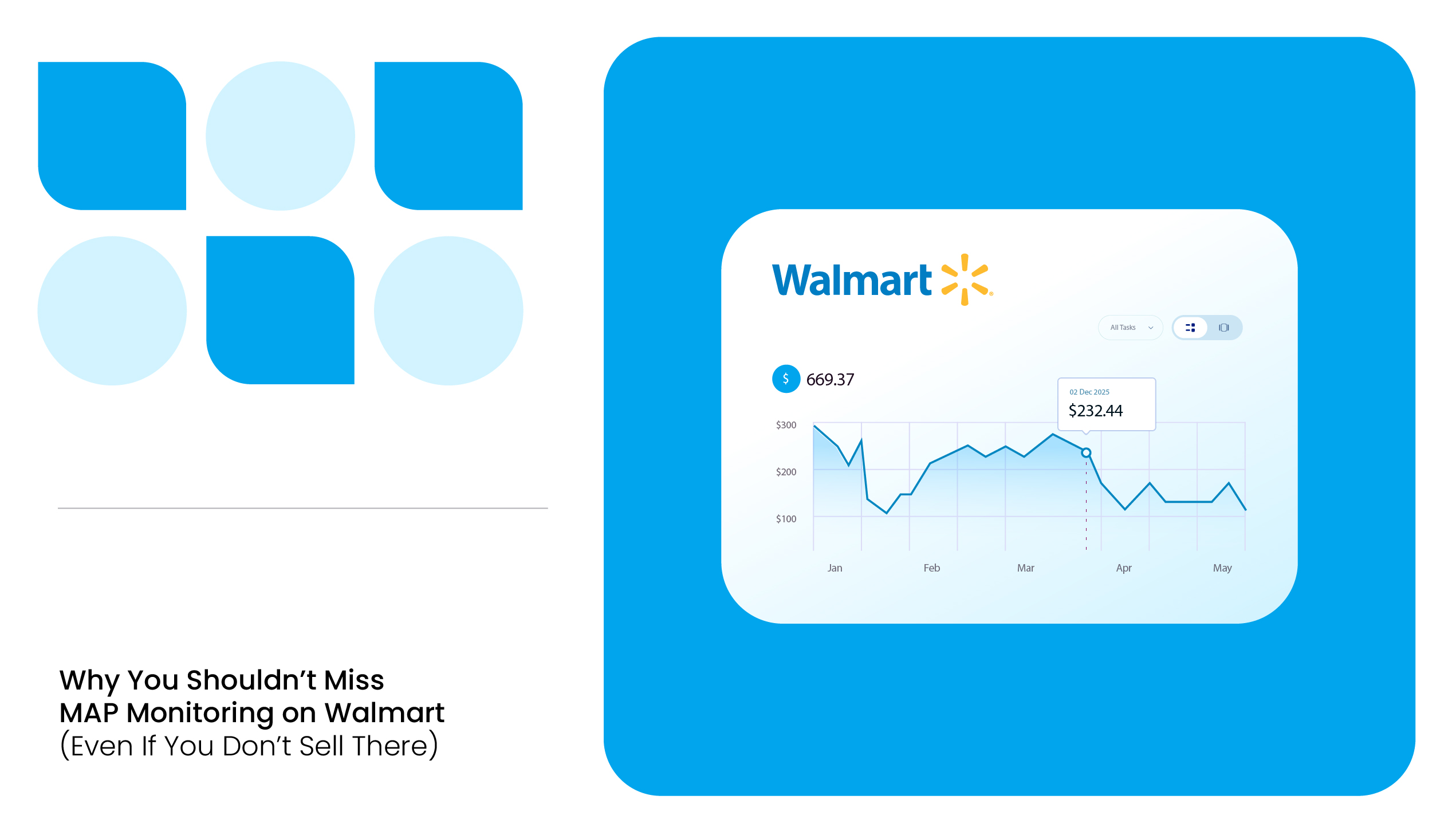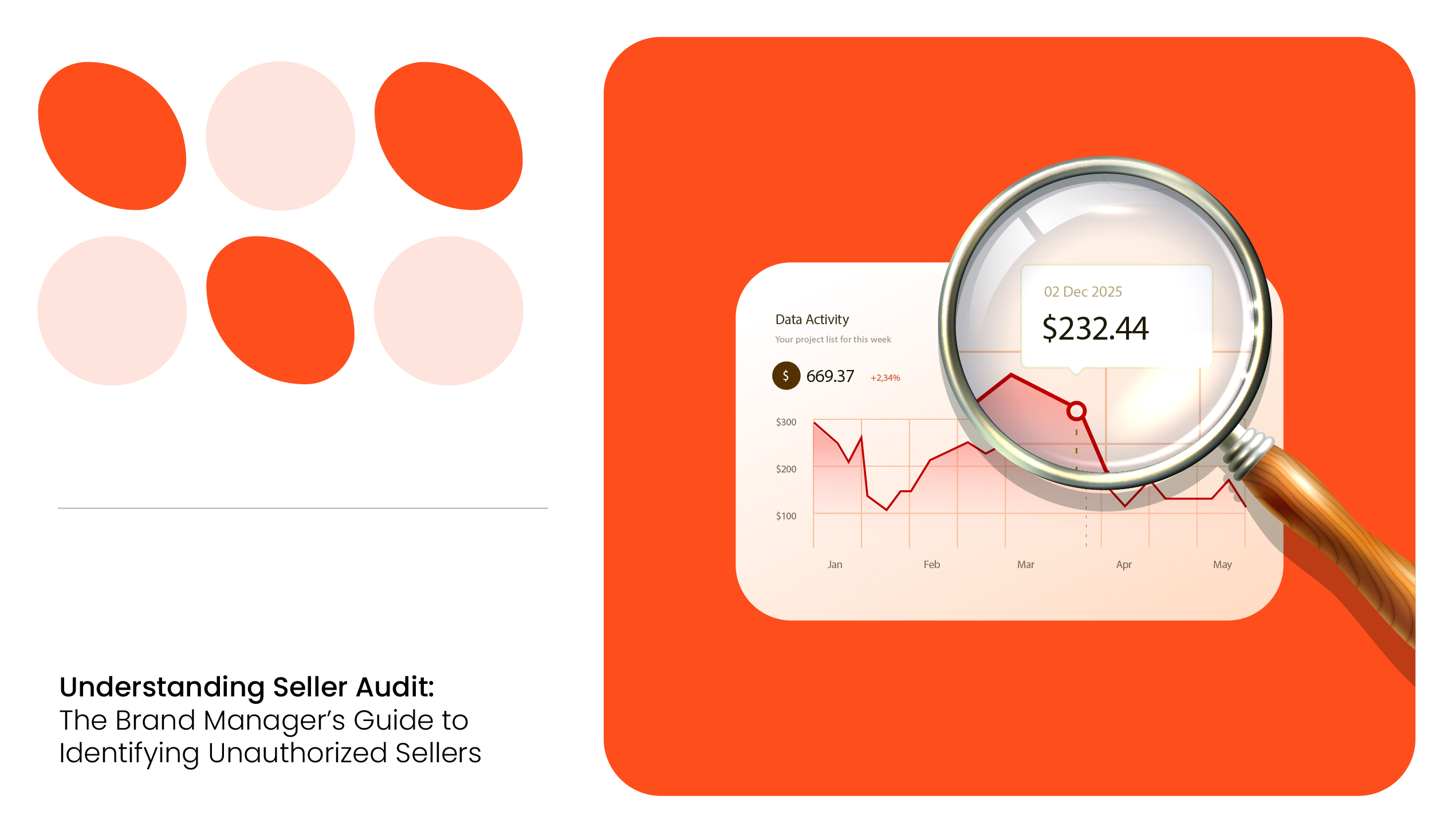Every brand or manufacturer aims to increase their brand value and profit by offering products that satisfy consumers’ requirements and desires. Often, online sellers or retailers become the bridge between brands and consumers, maintaining a channel built on trust and market discipline.
But when the seller breaks the trust through unethical competitive practices like offering heavy discounts, it becomes the responsibility of the brand to defend itself with foolproof measures. Unilateral Pricing Policy or UPP is a popular vertical pricing policy used by brands to restrain sellers from taking unfair advantage of their products.
What Is Unilateral Pricing Policy: History & Definition
The first instance of UPP pricing in the US can be observed in the Sherman Antitrust Act of 1890. The antitrust laws are intended to counter anti-competitive and monopolizing practices in the US market. Admitting the positive nature of the Unilateral Pricing Policy, it is important to understand that price restraints for sellers are filled with legal complexities.
Countries like the US and Canada implement pricing policies that prevent price undercutting and unfair promotional practices by sellers. This is done through two methods; by enforcing a contractual agreement with individual sellers through MAP policy and by creating a unilateral policy that applies commonly to all sellers.

In Episode 40 of the Digital Shelf Insider, Michael Murphy, Partner at K&L Gates, breaks down the legal nuances between MAP and unilateral pricing policies to help brands protect their margins and halt the “race to the bottom.”
Tune in to the full exclusive episode here:
The Unilateral Pricing Policy is a standardized pricing policy that the brand creates for compliant online sellers. This policy dictates different pricing methods ranging from the Minimum Advertised Policy to the Manufacturer’s Suggested Resale Price or MSRP.
The policy is applicable to all the sellers who choose to sell the products of the brand or manufacturer and need not get into a signed contract like bilateral MAP policies.
Here are some basic points of difference between UPP and MAP policies.
READ MORE | Want to know how UPP differs from other pricing policies? Explore our complete guide on Navigating Vertical Price Fixing in E-Commerce: MAP & Other Price Fixing Policies
|
UPP |
MAP |
|
|
|
|
|
|
Benefits of Unilateral Pricing Policy: How Brands Can Incentivize
Creating standardized UPP pricing for online sellers can vastly improve brand integrity and pricing consistency across multiple online marketplaces. Most of the time, sellers are compliant with its unilateral pricing that sets a minimum price to be advertised for the product.
With the rise of online retailers, the situation has taken a turn where the advertised prices can be different in places like product pages, check-out carts, etc. This price variation can create an unexpected impact on the manufacturer if it is not monitored and reported on time.
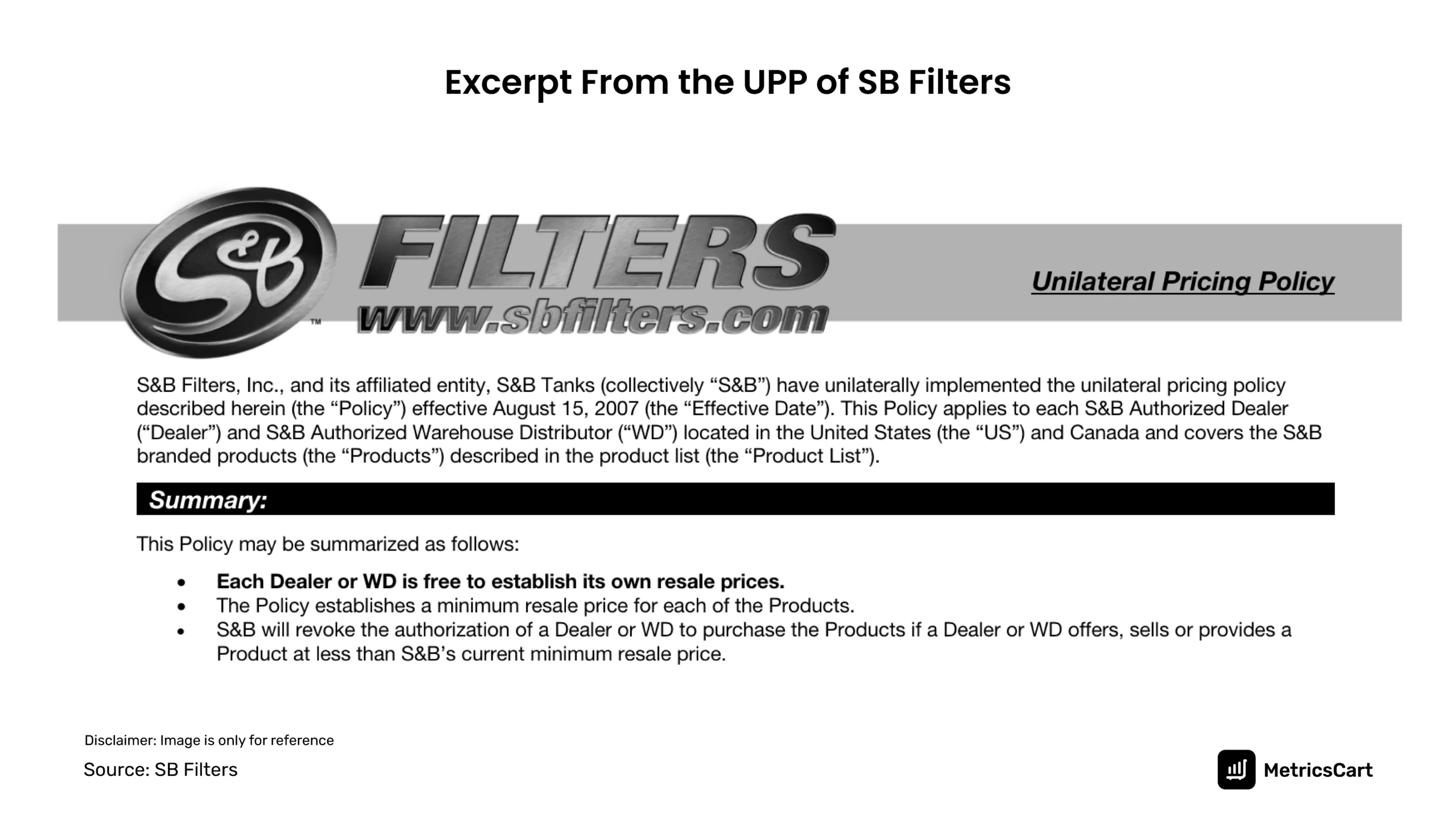
UPP makes this hyper-competitive environment navigatable for the brands by creating a non-negotiable road map for pricing their products.
Here are some of the major benefits of Unilateral Pricing Policy:
Prevents Price Erosion
Consistent drops in product prices can harm the brand identity and perception. This can create a whole roller coaster of problems for the manufacturer. In today’s online retail environment, price cuts are so common because consumers perceive online prices to be lower than physical store prices.
This competitive sales technique has become a boon and curse for brands.
Read more| Overcoming Price Erosion: Strategies for Brands on Online Marketplaces
Maintains Brand Consistency and Integrity
Pricing strategies are crucial for both manufacturers and retailers as it sets the elementary relationship with consumers. Inconsistent pricing of products across multiple online channels can disrupt the shopping experience for a consumer leading to a loss of brand loyalty.

Free of Legal Entrapment
Creating and enforcing MAP pricing for online retailers and 3P sellers is considered to be one of the diligent measures to prevent price wars and unfair competition. However, MAP policies are a tricky affair as it is riddled with anti-trust issues in the US legal system.
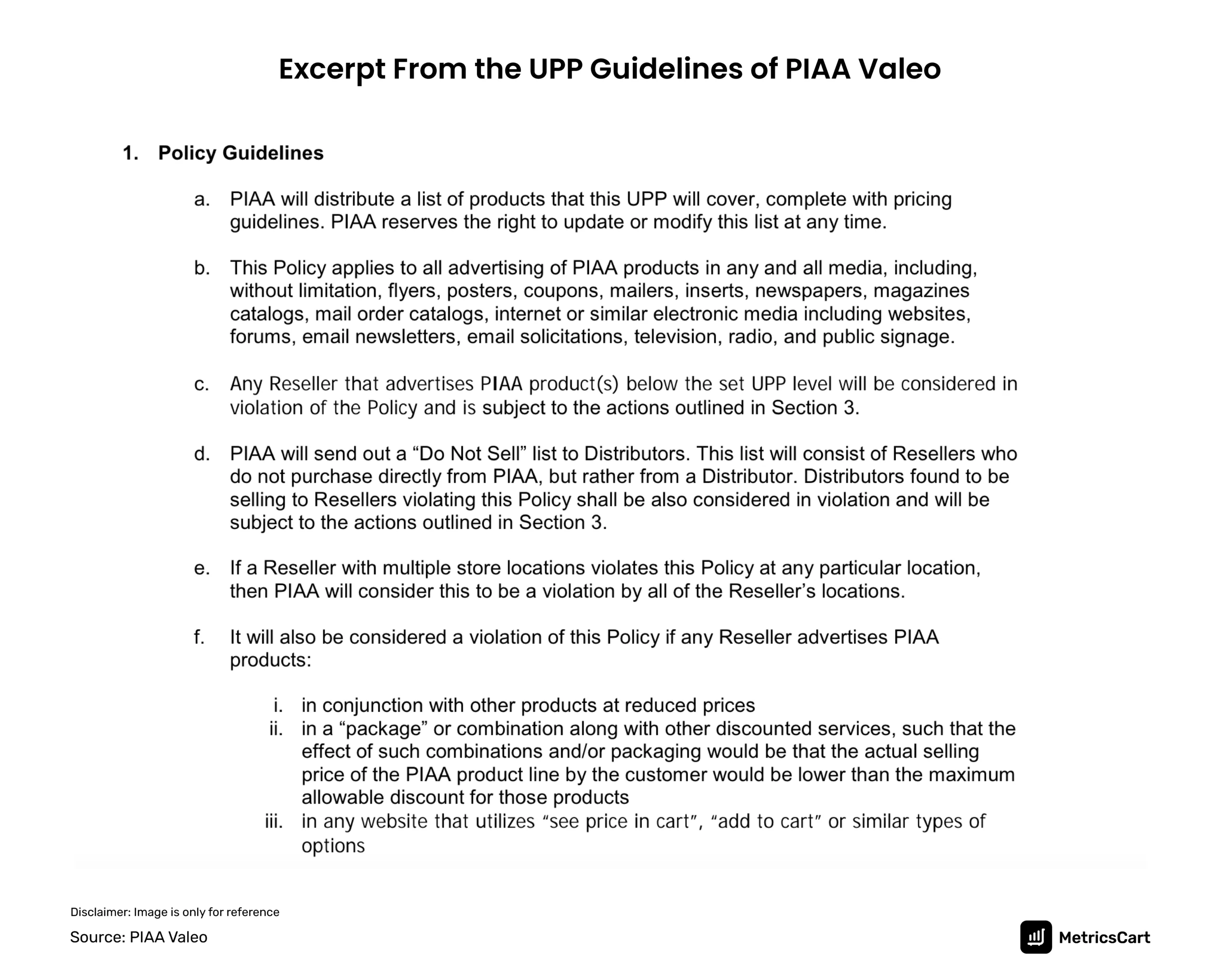
The legality of the Unilateral Pricing Policy takes a different route in this matter as it creates a standardized pricing policy that applies to all sellers without any signed contractual agreements.
Helps Retain Quality Online Sellers
A compliant 3P seller is a real asset for a brand as they create a transparent channel for product engagement and consumer satisfaction. This leads to better conversion rates and positive reviews that improve brand equity.
However, identifying and retaining a quality online seller requires persistent price monitoring from the brand’s side as this filters out fake/unauthorized sellers.
UPP forces the sellers to ‘play by the same rules’ in the market without having to engage individually with each seller or retailer.
Promotes Fair and Ethical Promotional Strategies
Offering seasonal deals, discounts, and price cuts on products can often increase profit for a small period of time. However, consistently offering undercut prices can destroy a brand’s reputation and harm profits.
UPP helps battle this problem by defining pricing rules with regard to creating promotional strategies for the brand products.
Broader Enforcement Options
With the implementation of a unilateral policy, enforcement and punitive measures take a wider approach. As UPP is non-negotiable and applied to a large base of sellers, enforcing it through punitive measures is easier than with bilateral MAP agreements.
This might include penalties as laid down in the UPP, closure of business with the non-compliant seller, etc.
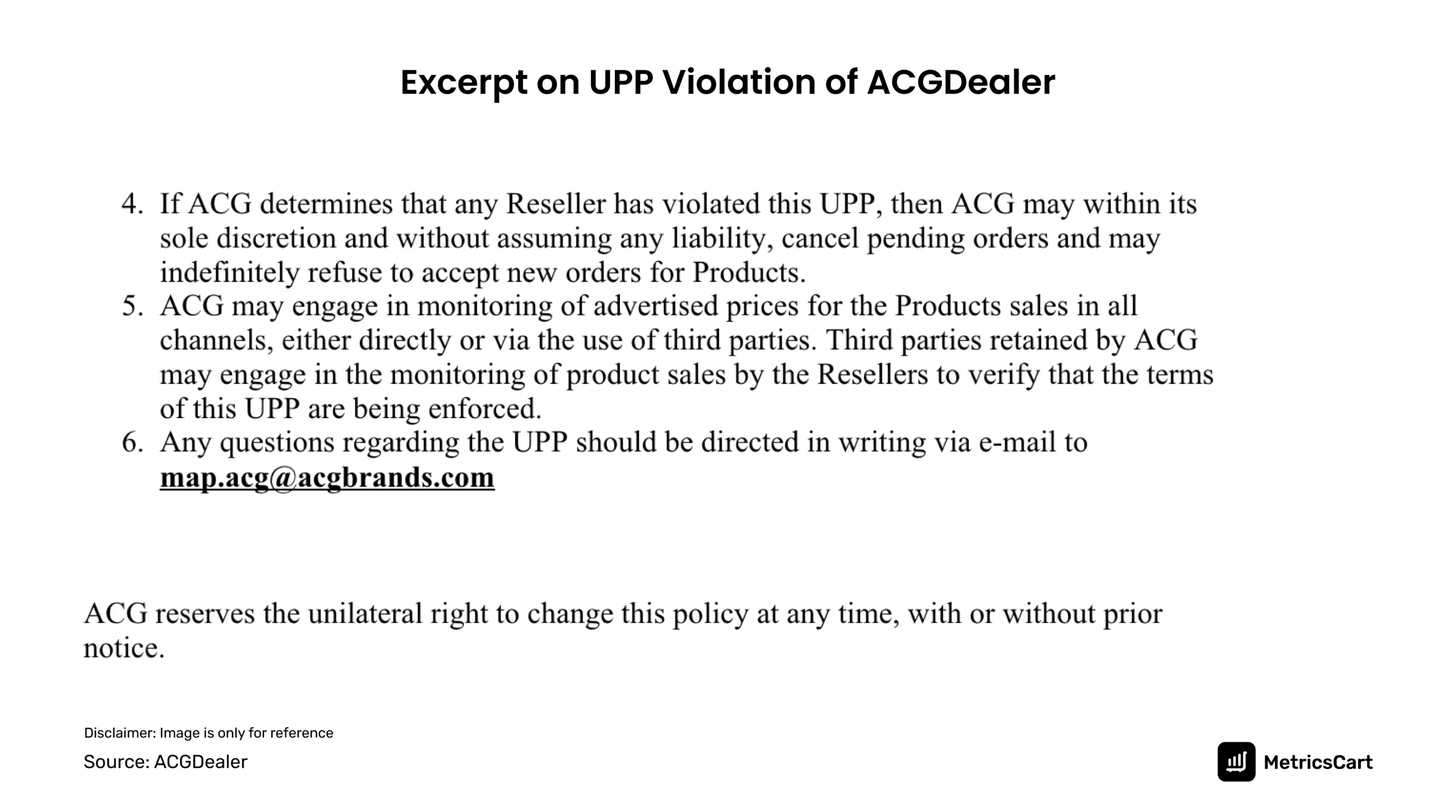
With a Unilateral Pricing Policy, a manufacturer can:
- Lay down clear-cut enforcement measures
- Identify and uproot fake 3P sellers without complicated paperwork
- Compliance becomes a non-negotiable responsibility
MetricsCart: The Unilateral Protector for Your Brand
Unilateral Pricing Policy can provide an overall anchor for various pricing policies like UMAP, MSRP, etc. However, creating a sound pricing policy doesn’t solve the problem of non-compliant sellers. An efficient monitoring service helps identify violations on time and with detailed data metrics.
At MetricsCart, we help brands by creating MAP monitoring and enforcement reports through advanced data analytics. We make sure that your online business lands on the right foot by cutting down on operational costs by almost 30%.
What makes MetricsCart the ideal choice?
- Swiftly identifies authorized/unauthorized sellers
- Detailed report on violation trends and newly launched products
- Evidence-based violation reports by taking screenshots
- Express report deliveries on a weekly or monthly basis
- Tiered action plan with pre-defined e-mail templates for easy MAP enforcement
Why choose us? We believe that every online business, big or small, deserves unflinching attention to its details and world-class price monitoring systems. Get on a discovery call with us to create a data-fueled strategy for your online business.
Ensure Pricing Consistency and Stay Ahead on the Digital Shelf
FAQs
A Unilateral Pricing Policy (UPP) is a standardized pricing strategy that brands use to set pricing rules for all their sellers, without requiring individual contracts. It helps prevent price erosion and ensures consistent pricing across multiple online channels.
UPP is a non-negotiable policy applied universally to all sellers, while MAP requires bilateral agreements and focuses only on minimum advertised prices. UPP also has fewer legal risks and is easier to enforce across multiple sellers.
Yes, UPP is legal in countries like the US and Canada, as long as it doesn’t violate antitrust laws. Unlike MAP policies, UPP doesn’t require signed contracts, making it less prone to legal complications.
UPP helps prevent price erosion, maintains brand consistency, promotes fair promotional strategies, and simplifies the enforcement of pricing policies across a large number of sellers.
Yes, UPP helps brands identify and eliminate unauthorized sellers by enforcing a single, consistent pricing structure. This ensures that only compliant sellers are allowed to offer the brand’s products, improving overall brand integrity.

